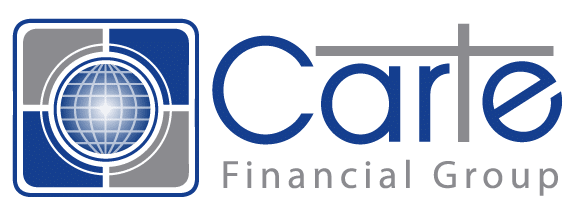Here are the 10 common tax mistakes to avoid:
Listen to this Podcast
10 common tax mistakes to avoid
Every year, thousands of Canadians make errors when they prepare their income tax returns. These may go unnoticed — or they could result in an unexpected payment or penalty. Play it safe and avoid these common errors. Here are the 10 common tax mistakes to avoid:
- Filing late. Be sure to file by April 30. If you owe taxes, you’ll pay a late-filing penalty of 5% of the tax owing plus 1% for each month you’re overdue, up to 12 months. You’ll also pay interest on the amount owing, plus on the late-filing penalty, starting May 1.
- Ignoring your partner. If you’re in a common-law relationship, you’re required to file as a couple. This can often be to your advantage.
- Lacking documentation. You may not need to provide certain slips or receipts with your return, but you do need to have them. Make sure they’re complete and ready to provide to the government if requested.
- Claiming moving expenses. If you’ve relocated your home to take a new job, run a business at a new location, or attend full-time post-secondary school, and are moving 40 km or more, you can claim a wide range of related expenses. However, if your new employer paid for them, you can’t claim those amounts as deductions on your tax return — and you’ll need to claim them as income.
- Claiming twice. Like moving expenses, there are other expenses you can’t claim if you’ve already been reimbursed. For example, if medical costs have been paid for by your insurer, you can only submit the remaining, unpaid amount as medical expenses.
- Mistaken medical expenses. Be sure to consult the list of approved medical expenses. Items that people often try to claim but which aren’t eligible include health plan premiums, gym memberships, birth control, blood pressure monitors, supplements or vitamins (even if prescribed by your doctor) and personal response systems.
- Misusing “other deductions.” This area is intended to capture allowable amounts not deducted elsewhere on your return, such as certain special instances with RRSPs, RRIFs and other types of pension plans. You can’t claim funeral expenses, wedding costs, legal fees or other non-allowable deductions.
- Claiming interest expenses on the wrong things. In general, you can only claim interest expenses if they were directly linked to an investment to earn an income. You can’t claim mortgage interest on your principal residence (if you’re not self-employed), for example, but you can claim it on your rental property.
- Claiming ineligible tuition fees. You can only claim tuition at recognized institutions.
- Not filing at all. In addition to possibly incurring hefty interest charges and penalties, you could be missing out on important tax breaks and the ability to accumulate RRSP contribution room.
At Carte Financial Group we have a team of tax experts to assist with complex situations. If you have any questions, don’t hesitate to contact your Carte Financial Advisor.
We hope you enjoyed this read. You can find our latest financial news articles on our News Blog. You can also find more informative videos on our Youtube channel.





More Financial News & Events
Exploring Financial and Emotional Resilience
Mindshift Mastery and Emotional Resilience
Creating a mentor mindset: How to become one or find one
Jan
Legal Financial Fitness: A Comprehensive Checklist for Thriving Practices
Jan
How to Mentally and Financially Prepare for a Layoff
Jan
2023 tax considerations you may have missed
Dec
How to Hold on to More of Your Cash this Holiday Season
Dec
Financial Moves to Make Before Year End
Dec
Navigating Stagflation: Financial Resilience in Uncertain Times
Nov
Buying and selling real estate amidst inflation
Nov
Navigating the Changing Tides: Real Estate, Inflation, and Rising Mortgage Rates
Nov
How does inflation affect your financial plan?
Nov
Caring for aging parents: The journey and lessons learned along the way
Oct
Resources For managing care for Aging Parents
Oct
Talking to Aging Parents About Finances
Oct
Living your best life: Infusing your best life into your your everyday
Oct
Living your best life: Striking the balance between enjoying life now or enjoying it later
Sep
Living Your Best Life: Client Testimonials and Insights
Sep
Unpacking FOMO: Understanding biases, emotions and financial attitudes
Aug
How to overcome FOMO to not overspend this summer
Aug
How to Overcome FOMO on Investments
Aug
What behaviours undermine your ability to build wealth
Jul
How Do You Loose Wealth
Jul
What Does Wealth Building Mean to Our Clients?
Jul
Estate Planning: What You Can Learn From the Mistakes of Celebrities
Jun
Estate Planning For Lawyers
Jun
Estate Planning for Business Owners
Jun
Managing growth for business owners
May
Are you a lawyer with questions on how to grow your investments?
May
Cultivating a growth mindset around money
May
Why financial growth can be deceptive
May
Home and Financial Document Organization
Apr
Business owners, it’s time to start spring cleaning.
Apr
Spring Cleaning Your Finances
Apr
Unique financial challenges female lawyers face
Mar
Taking Action: A Woman’s Perspective on Deciding To Tackle Her Finances
Mar
Is there a gap in your income protection?
Mar
Knowing the difference between Tax Filer and Tax Advisor
Mar
Conquering Women’s Fears Around Finances
Mar
Trends in Family Law
Feb
PART 2: Financial Conversations Couples Need To Have at Different Life Stages
Feb
Financial Conversations Couples Need To Have at Different Life Stages
Feb
Disruption and Reinvention: Starting a Second Career in your Forties
Jan
How to create a strong financial fortress during market downturns
Jan
Creating a Financial Vision Board for 2023
Jan
5 Tips to set yourself up For Financial Success in 2023
Jan
Year-end Donation strategies
Dec
Year-end tax planning
Dec
Getting clients organized for 2023
Combating Quiet Spending
Nov